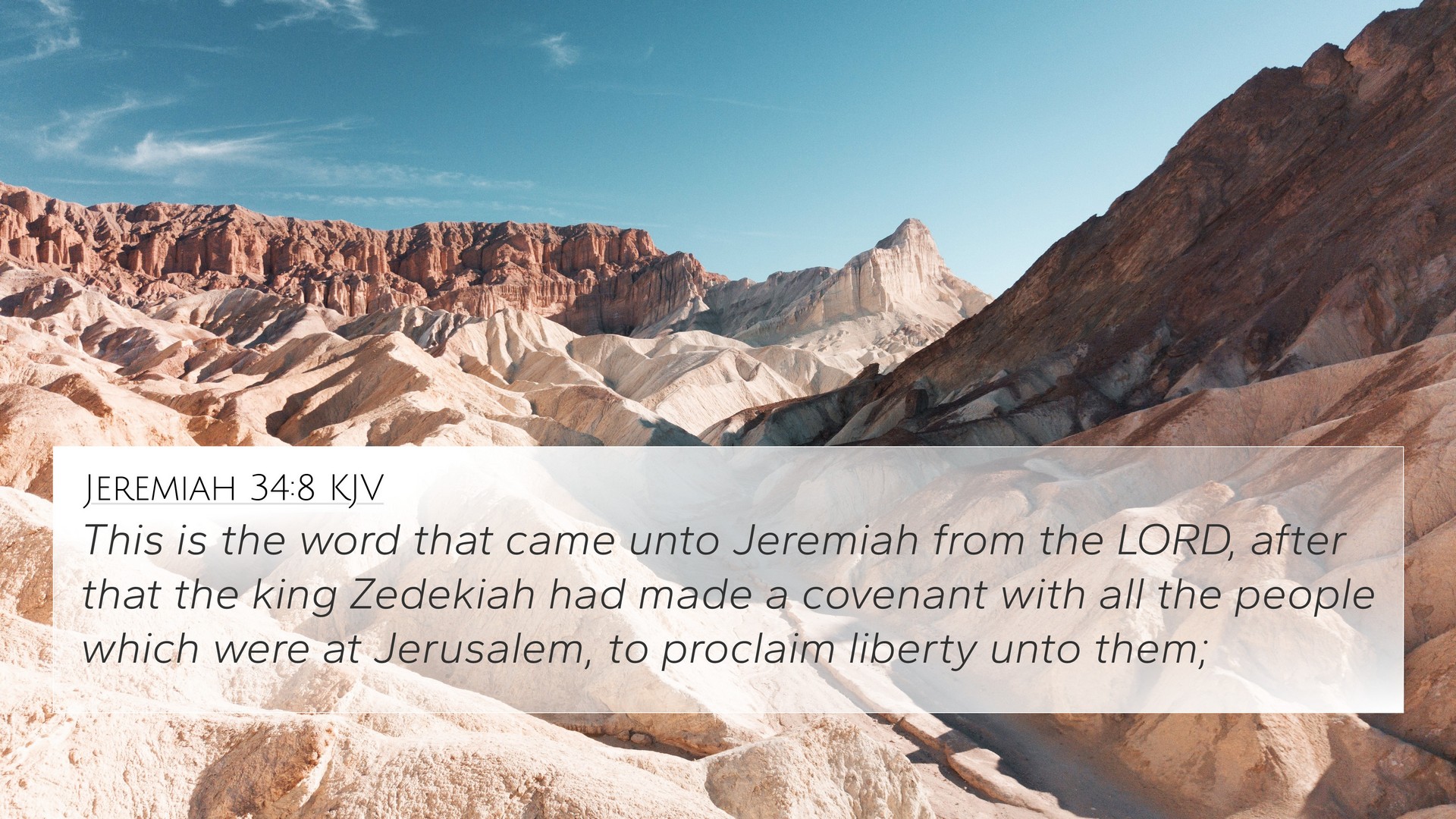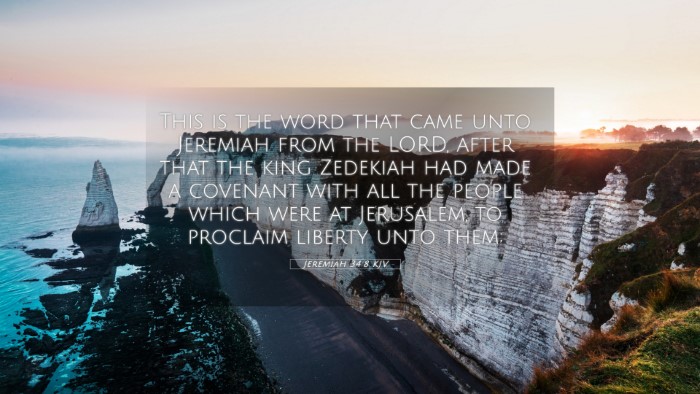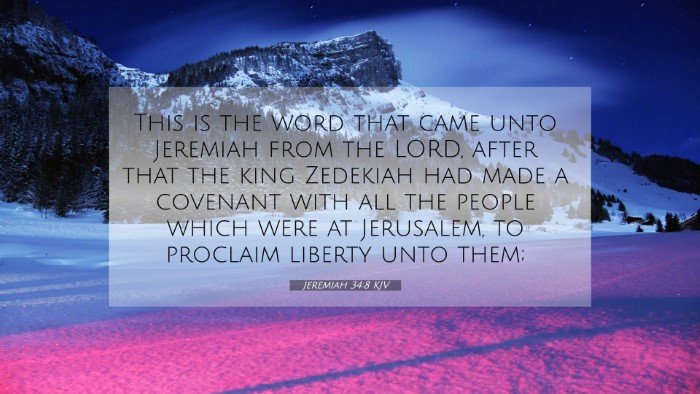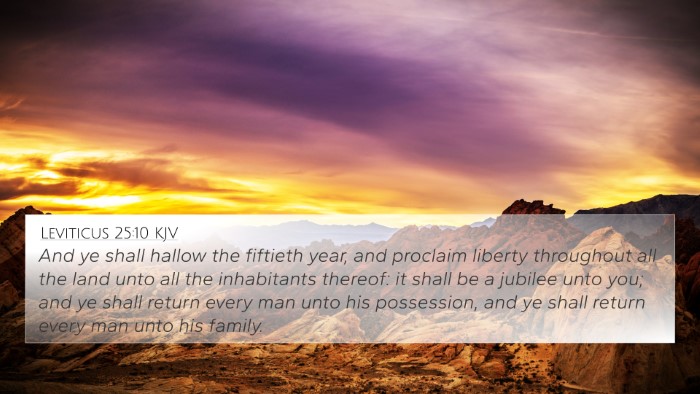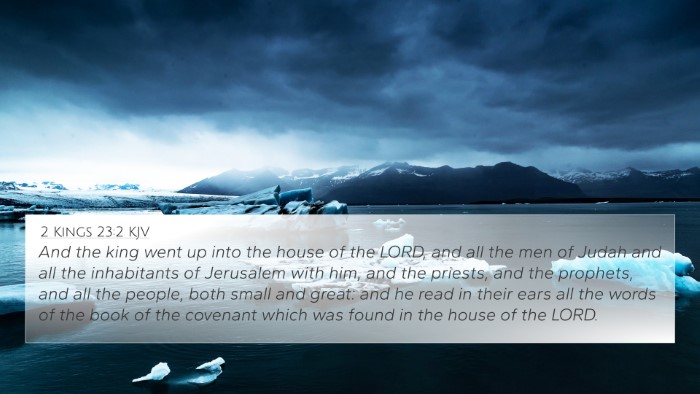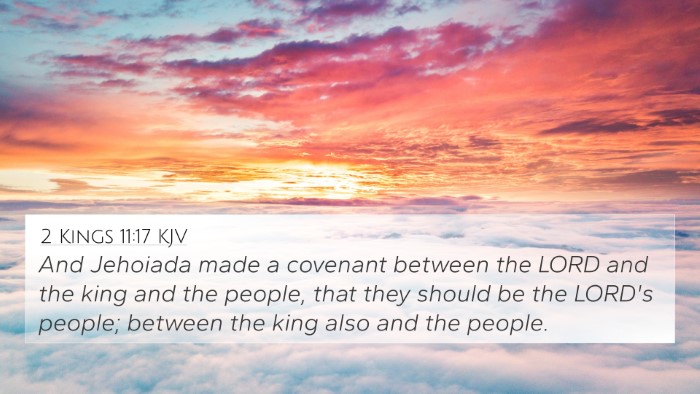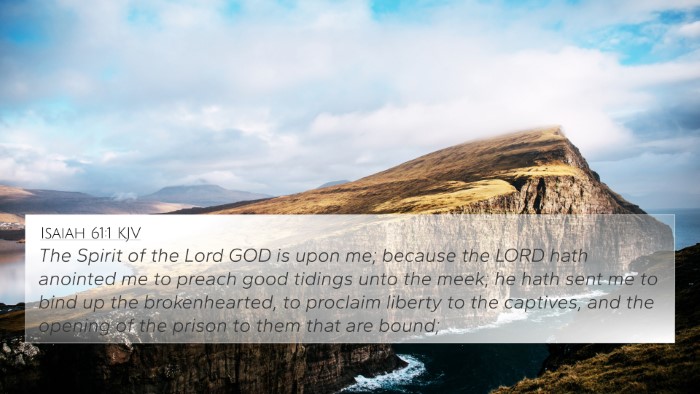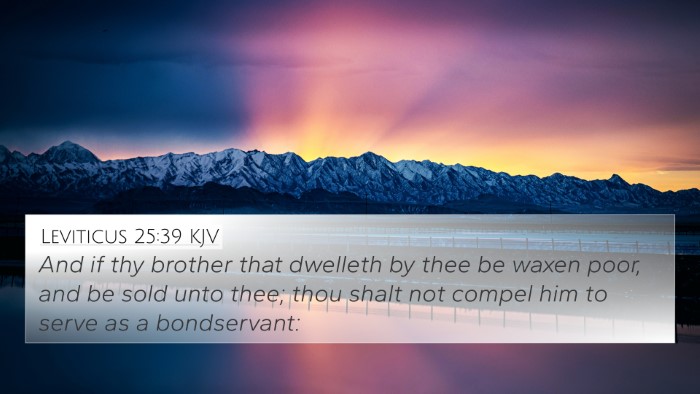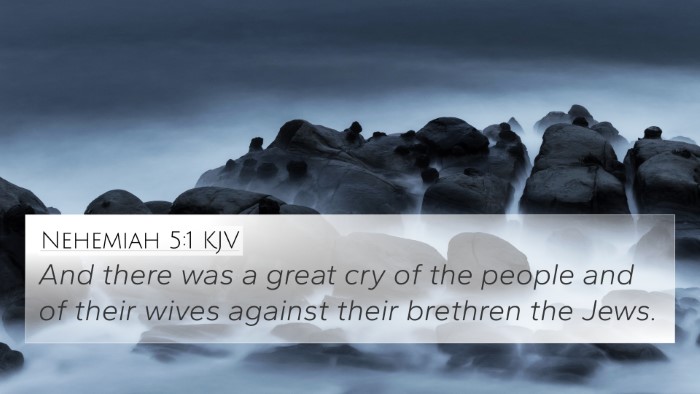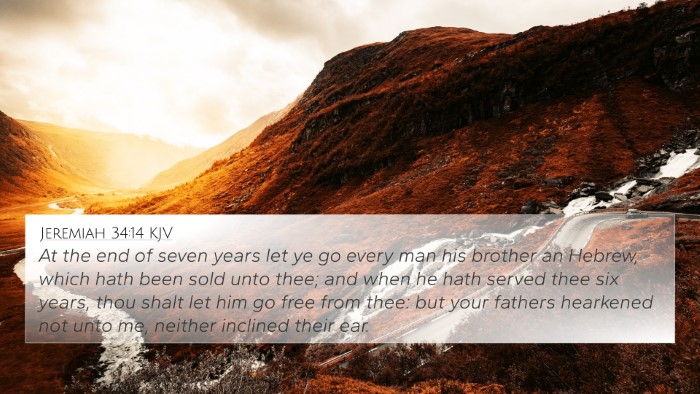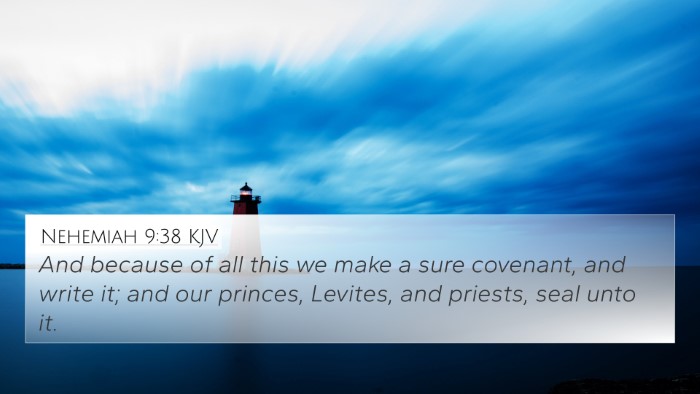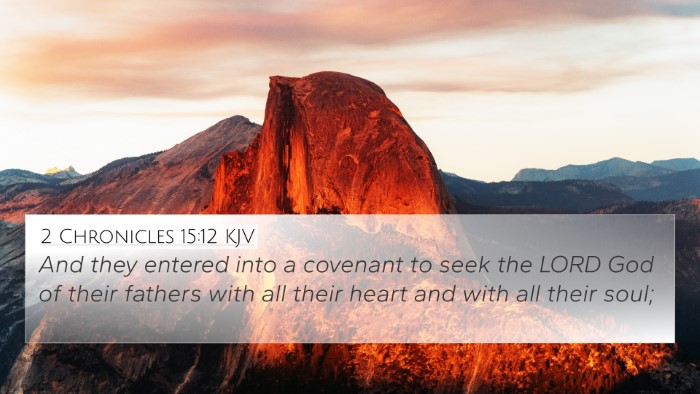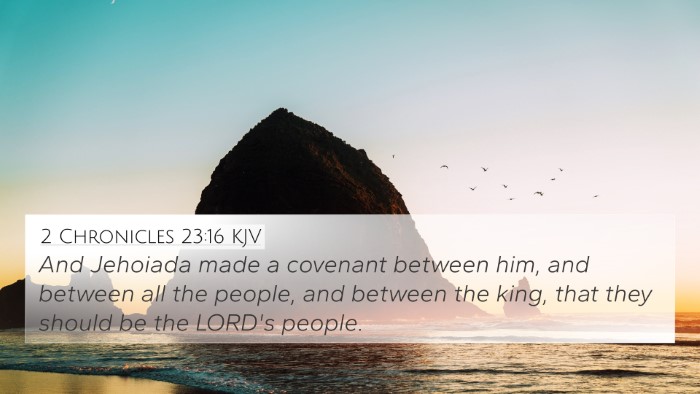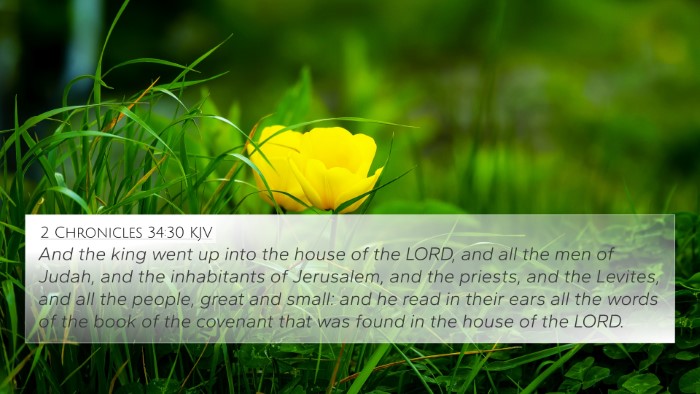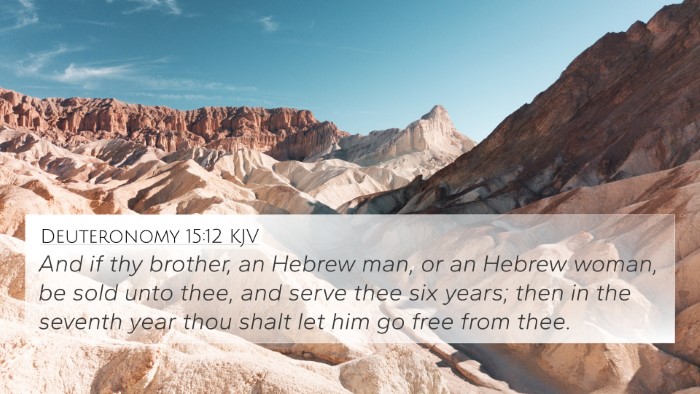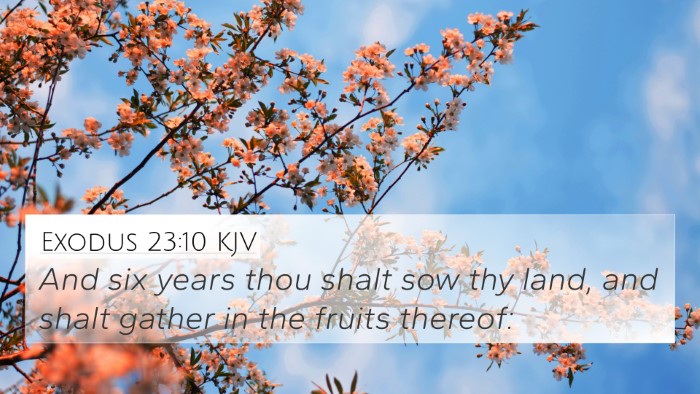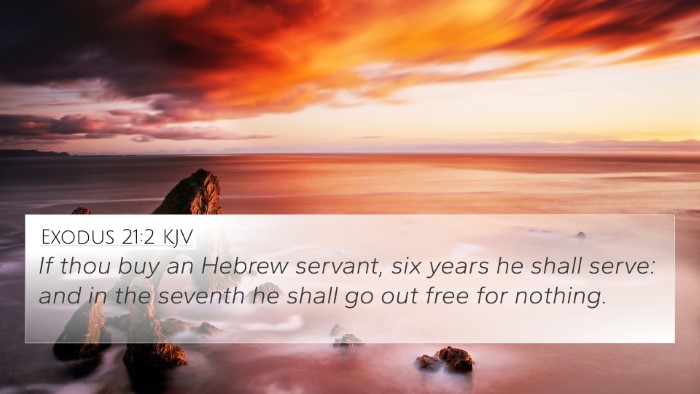Understanding Jeremiah 34:8
Jeremiah 34:8 states, "The word that came unto Jeremiah from the Lord, after that the king Zedekiah had made a covenant with all the people which were at Jerusalem, to proclaim liberty unto them." This verse marks a significant moment in Judah’s history, specifically discussing the covenant made by King Zedekiah to grant freedom to Hebrew slaves. The context of this verse revolves around themes of freedom and the obedience of the people to divine commandments.
Verse Meaning and Context
In this passage, Jeremiah serves as a messenger, delivering God's word to the people following a royal declaration. This proclamation is critical as it attempts to align the social practices in Judah with God's desire for justice and mercy. Both Matthew Henry and Albert Barnes note the importance of liberty in this verse, emphasizing that it was God's intention for the Israelites to experience freedom, especially during times of oppression.
Adam Clarke observes the broader implications of this covenant, highlighting that although Zedekiah initiated it with good intentions, the people's resolve was weak, leading to their eventual failure to uphold this promise. This reflects a recurring theme in scripture regarding human nature's struggle against divine expectations.
Key Themes
- Liberty: The promise of liberty stands as a central theme, symbolizing physical and spiritual freedom.
- Divine Covenant: The covenant made illustrates the relationship between God and His people, emphasizing obedience to His commands.
- Prophetic Voice: Jeremiah's role as a prophet highlights the significance of divine communication in guiding societal norms.
- Human Failure: The failure of the people to maintain their commitment reflects a larger narrative about sin and redemption.
Bible Cross-References
To gain a deeper understanding of Jeremiah 34:8, we can look at several relevant Bible verses that enhance its meaning and context:
- Exodus 21:2: Discusses the treatment of Hebrew servants, establishing a legal foundation for freedom.
- Leviticus 25:10: Introduces the Year of Jubilee, where slaves are to be freed, resonating with the themes of liberty in Jeremiah.
- Isaiah 61:1: Proclaims liberty to captives, illustrating God's desire for redemption throughout the scriptures.
- Jeremiah 7:5-7: Stresses the importance of justice and compassion as God’s expectations from His people.
- Matthew 5:37: Jesus' teachings on oaths relate to the covenantal themes present in Jeremiah.
- Luke 4:18: Jesus quotes Isaiah, emphasizing the mission of liberation similar to the themes in Jeremiah.
- Galatians 5:1: Speaks of Christian liberty, making a thematic connection with the freedom proclaimed in Jeremiah.
Thematic Connections
The dialogue between the Old and New Testament regarding themes of freedom and bondage provides a rich landscape for understanding biblical intent. Jeremiah 34:8 is not merely a historical account but functions as part of a greater narrative about redemption and God's persistent call to His people to adhere to righteous living.
Tools for Bible Study
For those looking to explore these themes further, utilizing a Bible concordance can help identify related verses, while a cross-reference Bible study can illuminate connections in a thematic context. Understanding how to use Bible cross-references will deepen the study experience.
Conclusion
In concluding our study of Jeremiah 34:8, it’s evident that this verse encapsulates significant theological truths regarding liberty, covenant, and the reciprocal relationship between God and humanity. By cross-referencing with other biblical texts, we unveil a richer understanding of these concepts, reinforcing the timeless relevance of scripture in guiding moral and spiritual lives.
